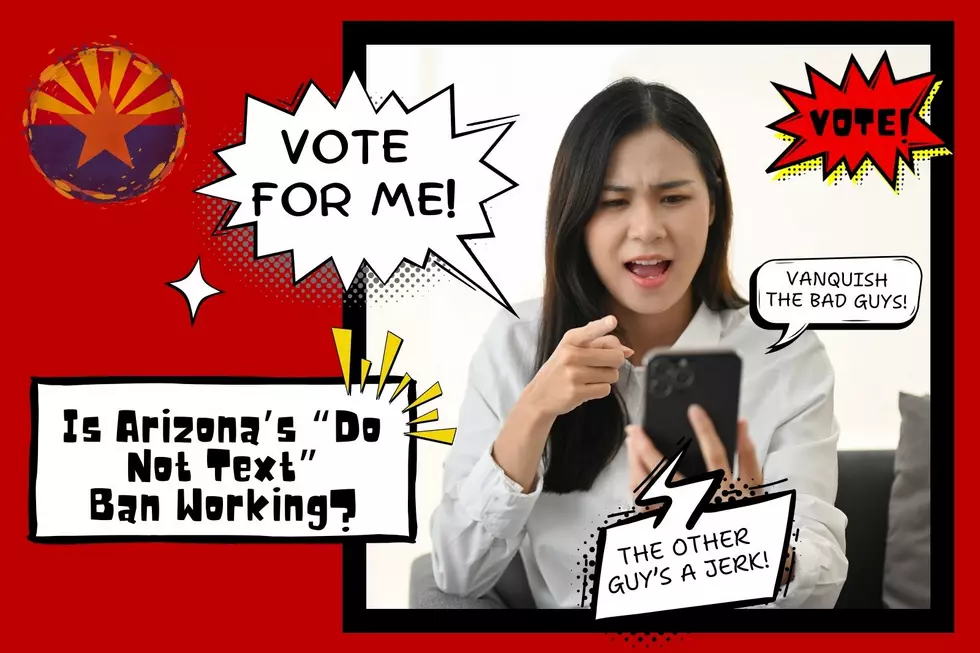
Can You Stop Those Pesky Political Texts in Arizona?
I can't believe I'm going to say this, but the presidential election can't come soon enough. I think I get about twenty unsolicited text messages every day telling me who I should vote for and the dire consequences that will ensue if I pick the wrong guy.
What's up with that? Last year, the Grand Canyon State officially put the kibosh on those pesky solicitor texts with a shiny new Do Not Text ban. How about the political messages? How did they squeak through?
What the Do Not Text Ban is Supposed to Do in Arizona
Arizona House Bill 2498 was signed by Governor Katie Hobbs last year. The bill amended Arizona's “do not call” law to keep solicitors from spamming us with text messages we didn't consent to.
READ: Tax, Text, and Transgender: 3 Arizona Laws Taking Effect in 2024
If you're signed up with the National Do Not Call Registry, you shouldn't be getting text messages from anyone you didn't give your permission to. Essentially, you should only be getting messages from your employer, anyone you gave your number to and have a personal relationship with, or any of those sellers you agreed to receive text messages from.
Basically, if you can opt out, they're allowed to message you. In fact, Arizona's attorney general can investigate and fine violators up to $1,000 for every violation.

Reporting Spam Text Messages to the FCC
In spite of this prohibition, robotexts, especially political robotexts, are still getting through. According to the FCC:
"Robotexts– text messages generated through auto dialing – are also considered a type of call and fall under all robocall rules."
Text messages require the called party's prior express consent. But, political text messages are allowed without the intended recipient’s prior consent if the message’s sender does not use autodialing technology to send such texts and instead manually dials them.
Um. What? How do you know they've been manually dialed? How can the intended textee prove you weren't autodialed? This is baffling and frustrating. But there is something you can do.
Report Unwanted Calls and Texts
Most cell phones and carriers have the technology to block the messages and/or send them to a spam folder. The software is usually smart enough to flag these messages as spam and move them for you. It's still a nuisance, though.
If you have the time and energy, you can report these messages to the FCC if you think you're being sent political robocalls (or robotexts) that don't meet these requirements.
- You can file a formal complaint with the FCC at fcc.gov/complaints.
- You can also forward the report to the sender by forwarding the texts to 7726 (or "SPAM").
- Campaigns should also honor opt-out requests if you reply "STOP," but believe me when I tell you, this is like playing whack-a-mole. You can spend a lot of time and energy on this.
Absolutely Absurd Laws You're Probably Breaking in Arizona, Right Now
Gallery Credit: Tim Gray
9 of the Top Things Arizona is Worried About this Year
Gallery Credit: Val Davidson/TSM
LOOK: Do you see faces in these photos?
Gallery Credit: Stephen Lenz
More From K101









